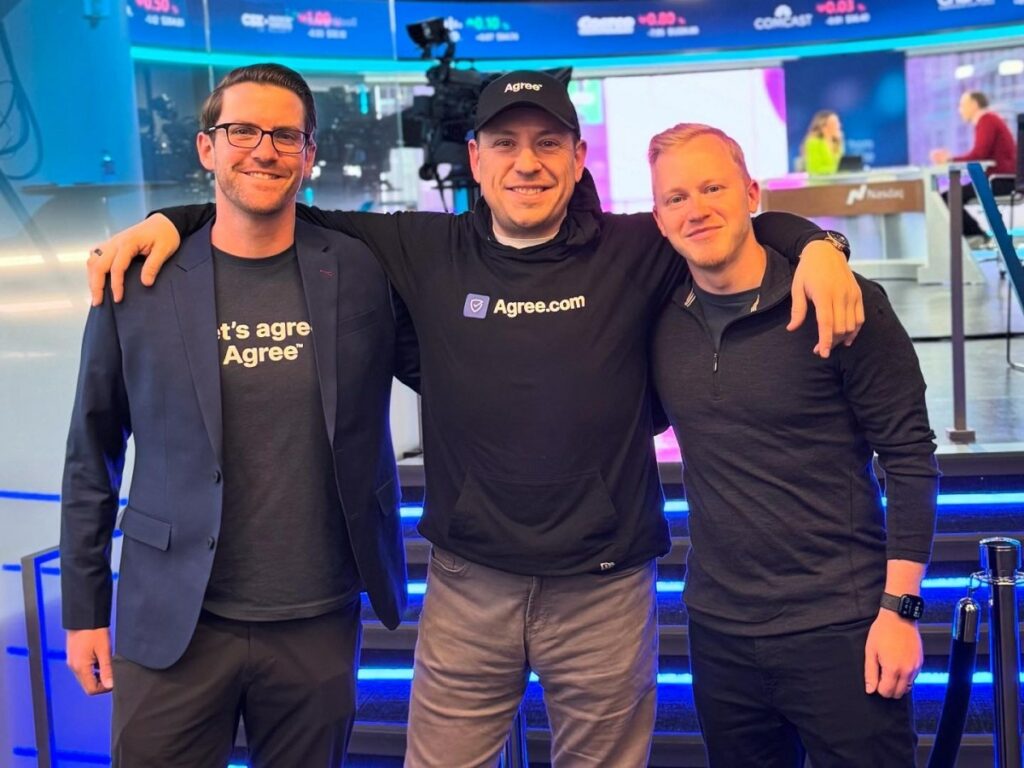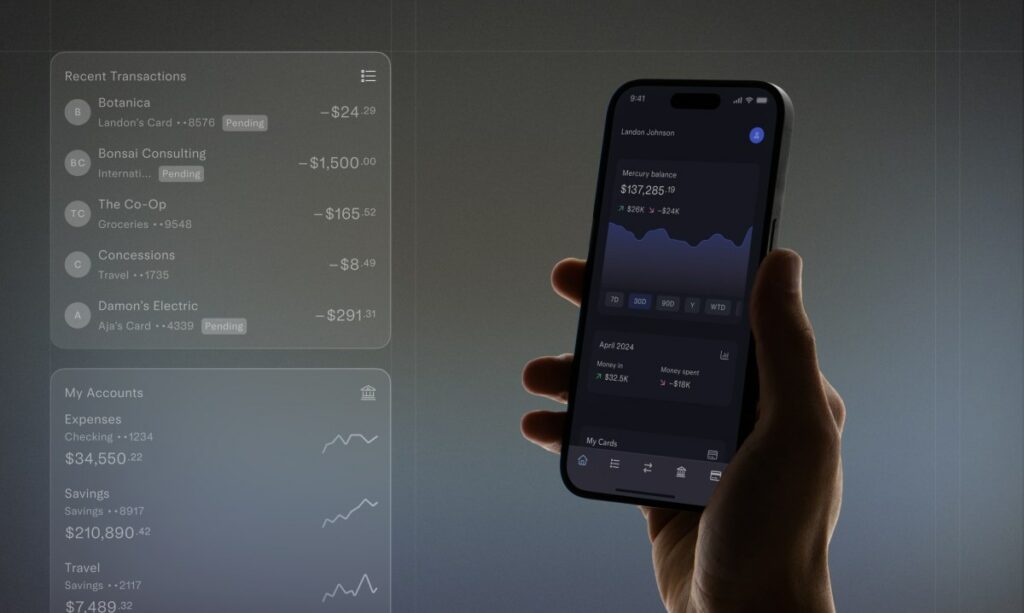Agree.com says its AI-powered e-signature platform is different from competitors because it includes invoicing and payment processing. That’s why the company might have a shot at tackling the industry goliath, Docusign.
Because the startup makes its money from transaction fees for any money movement facilitated by its platform, Agree.com has made e-signatures free to all users.
And now it’s raised a $7.2 million seed round, the company tells TechCrunch exclusively.
Founded in February 2024, Agree also raised $3 million in a pre-seed round of funding last year led by Sheel Mohnot, general partner at Better Tomorrow Ventures. This latest financing was oversubscribed and led by Tyler Hogge at Pelion Venture Partners, according to Agree.com co-founder CEO Marty Ringlein. Funding for the raise only took two weeks, according to a source familiar with the transaction.
Agree.com uses AI on top of optimal character recognition (OCR) software so that it can auto-detect and label all of a contract’s input fields and signature blocks. Its technology can also identify and extract “any and all” payment terms to dynamically generate invoices.
“At the end of almost every signature, someone has to pay someone money,” Ringlein told TechCrunch. “We combine what has historically been a disjointed and fragmented workflow to make signing better and payments faster.”
Because of its multitasking approach, Ringlein believes that Agree.com can potentially replace traditional e-signature software and invoicing and accounts receivable tools such as Bill.com.
Techcrunch event
Berkeley, CA
|
June 5
“Agree extracts every character, indentation, semi-colon, and hyphen to not only understand the type of contract being signed, but make it fully editable and collaborative with commenting, redlining, and version control,” Ringlein told TechCrunch.
Although it primarily competes with Docusign, Agree’s business model is a fintech company through B2B payments.
So far, its trajectory seems promising. In its first three months, after launching in early September 2024, it hit 10,000 users. Seven weeks later, it doubled to over 20,000 users. Today, it has over 25,000 users, including ad networks such as Beehiv and Product Hunt, B2B SaaS startups such as Rho and TaxGPT, and enterprise sales teams like Brico and Thoropass, it says.
Agree offers a premium offering for larger teams that charges a traditional monthly SaaS fee per seat. It also will monetize invoicing and billing logic on transaction volume.
Presently, Agree has seven employees, including co-founders Will Hubbard (COO) and Evan Dudla (CTO).
All of the founders have launched and sold multiple previous startups. Ringlein, for instance, previously sold design agency nclud to Twitter in May, 2012, for an undisclosed amount. In 2016, Ringlein, Dudla and Agree’s CPO Michael Dick sold a startup called nvite to Eventbrite. In 2020, that trio also sold Gather to Brex
Hubbard started his first company, air quality monitory startup ChemiSense, as a junior at UC Berkeley. He ran it for about six years and sold it to Kaiterra in 2019. Hubbard then started his next company, Niche (verticalized community marketplaces), shortly thereafter, and it was acquired by Opera Event in 2020.
More recently, Hubbard and Ringlein also started early-stage venture firm Adventure Fund, which has invested in the likes of Mercury and beehiiv.
As for the growth plan for Agree, Pelion Partner Tyler Hogge told TechCrunch that “the smartest way to get massive adoption would be to use e-signature as the wedge, give it away for free, and make it impossible for incumbents to reply.”
Hogge added that Agree’s “business model is truly unique: free software, monetized through invoicing and payments.”
Blank Ventures also participated in the seed round, along with angel investor Gokul Rajaram. All existing backers, including Better Tomorrow Ventures, 8-Bit Capital, Sophia Amoruso’s Trust Fund, Hustle Fund, Everywhere Ventures, Singh Capital Partners and Firsthand VC doubled down on their investment.
While the company primarily operates in the United States today, it intends to expand internationally later this year, starting with the United Kingdom, Canada, and Australia.


